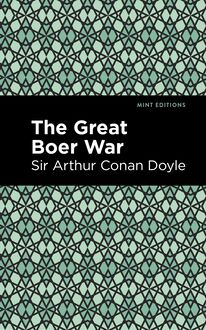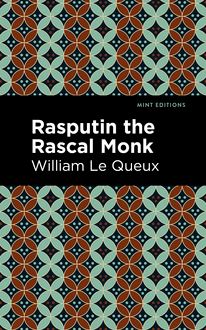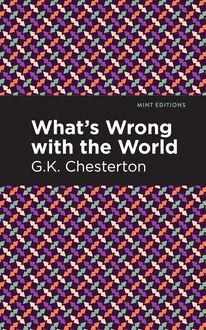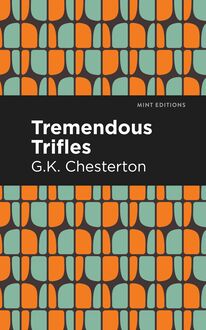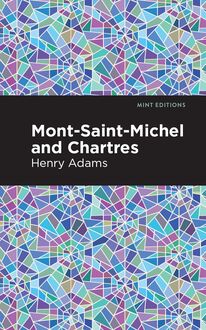-
 Univers
Univers
-
 Ebooks
Ebooks
-
 Livres audio
Livres audio
-
 Presse
Presse
-
 Podcasts
Podcasts
-
 BD
BD
-
 Documents
Documents
-
- Cours
- Révisions
- Ressources pédagogiques
- Sciences de l’éducation
- Manuels scolaires
- Langues
- Travaux de classe
- Annales de BEP
- Etudes supérieures
- Maternelle et primaire
- Fiches de lecture
- Orientation scolaire
- Méthodologie
- Corrigés de devoir
- Annales d’examens et concours
- Annales du bac
- Annales du brevet
- Rapports de stage
La lecture à portée de main
Vous pourrez modifier la taille du texte de cet ouvrage
Découvre YouScribe en t'inscrivant gratuitement
Je m'inscrisDécouvre YouScribe en t'inscrivant gratuitement
Je m'inscrisEn savoir plus
Vous pourrez modifier la taille du texte de cet ouvrage
En savoir plus

Description
The Crock of Gold (1912), one of three original novels by James Stephens, is a work only a master of fiction and folklore could imagine. Taking up the major philosophical and psychological concerns of the early-twentieth century—over a decade before works by T.S. Eliot, James Joyce, and Virginia Woolf, among others, would cement literary Modernism’s place in history—Stephens’ novel is a groundbreaking and important work.
The text centers on the Philosopher and his wife, the Thin Woman, who undergo a series of journeys and harrowing trials. Faced with danger both human and divine, the two characters are forced to weather the winds of change in order to change themselves. Divided into six books, The Crock of Gold—no doubt inspired by the Irish oral tradition of storytelling—follows the Philosopher’s quest to save the most beautiful woman in the world; his encounter with the gods who have captured her; his return home and arrest for murder (he has been framed by leprechauns incensed at the loss of their crock of gold); and finally, the Thin Woman’s quest to find the fabled Three Infinites.
James Stephens’ The Crock of Gold is perhaps unparalleled in its ability to weave together ancient narrative techniques, mythological sources, and such dominant themes of its day as gender equality and humanity’s quest for self-understanding beyond the traditional boundaries of faith and religion. It is also a darkly comic novel, full of ironic political commentary and suspiciously human conversations situated within the animal world. Most popular of Stephens’ works, The Crock of Gold conceals in its humorous, irreverent outlook a deeply serious, ultimately reverent love for the human soul—unsurprising for an author whose life was marked with difficulty from the very beginning.
With a beautifully designed cover and professionally typeset manuscript, this new edition of James Stephens’ The Crock of Gold is a classic of Irish literature reimagined for modern readers.
Sujets
Informations
| Publié par | Mint Editions |
| Date de parution | 01 décembre 2020 |
| Nombre de lectures | 0 |
| EAN13 | 9781513272412 |
| Langue | English |
| Poids de l'ouvrage | 2 Mo |
Informations légales : prix de location à la page 0,0600€. Cette information est donnée uniquement à titre indicatif conformément à la législation en vigueur.
Extrait
The Great Boer War
Sir Arthur Conan Doyle
The Great Boer War was first published in 1900.
This edition published by Mint Editions 2020.
ISBN 9781513267418 | E-ISBN 9781513272412
Published by Mint Editions®
minteditionbooks.com
Publishing Director: Jennifer Newens
Design & Production: Rachel Lopez Metzger
Typesetting: Westchester Publishing Services
C ONTENTS P REFACE TO THE F INAL E DITION I. T HE B OER N ATIONS II. T HE C AUSE OF Q UARREL III. T HE N EGOTIATIONS IV. T HE E VE OF W AR V. T ALANA H ILL VI. E LANDSLAAGTE AND R IETFONTEIN VII. T HE B ATTLE OF L ADYSMITH VIII. L ORD M ETHUEN ’ S A DVANCE IX. B ATTLE OF M AGERSFONTEIN X. T HE B ATTLE OF S TORMBERG XI. B ATTLE OF C OLENSO XII. T HE D ARK H OUR XIII. T HE S IEGE OF L ADYSMITH XIV. T HE C OLESBERG O PERATIONS XV. S PION K OP XVI. V AALKRANZ XVII. B ULLER ’ S F INAL A DVANCE XVIII. T HE S IEGE AND R ELIEF OF K IMBERLEY XIX. P AARDEBERG XX. R OBERTS ’ S A DVANCE ON B LOEMFONTEIN XXI. S TRATEGIC E FFECTS OF L ORD R OBERTS ’ S M ARCH XXII. T HE H ALT AT B LOEMFONTEIN XXIII. T HE C LEARING OF THE S OUTH -E AST XXIV. T HE S IEGE OF M AFEKING XXV. T HE M ARCH ON P RETORIA XXVI. D IAMOND H ILL —R UNDLE ’ S O PERATIONS XXVII. T HE L INES OF C OMMUNICATION XXVIII. T HE H ALT AT P RETORIA XXIX. T HE A DVANCE TO K OMATIPOORT XXX. T HE C AMPAIGN OF D E W ET XXXI. T HE G UERILLA W ARFARE IN THE T RANSVAAL : N OOITGEDACHT XXXII. T HE S ECOND I NVASION OF C APE C OLONY (D ECEMBER 1900 TO A PRIL 1901) XXXIII. T HE N ORTHERN O PERATIONS FROM J ANUARY TO A PRIL , 1901 XXXIV. T HE W INTER C AMPAIGN (A PRIL TO S EPTEMBER , 1901) XXXV. T HE G UERILLA O PERATIONS IN C APE C OLONY XXXVI. T HE S PRING C AMPAIGN (S EPTEMBER TO D ECEMBER , 1901) XXXVII. T HE C AMPAIGN OF J ANUARY TO A PRIL , 1902 XXXVIII. D E L A R EY ’ S C AMPAIGN OF 1902 XXXIX. T HE E ND
P REFACE TO THE F INAL E DITION
D uring the course of the war some sixteen Editions of this work have appeared, each of which was, I hope, a little more full and accurate than that which preceded it. I may fairly claim, however, that the absolute mistakes made have been few in number, and that I have never had occasion to reverse, and seldom to modify, the judgments which I have formed. In this final edition the early text has been carefully revised and all fresh available knowledge has been added within the limits of a single volume narrative. Of the various episodes in the latter half of the war it is impossible to say that the material is available for a complete and final chronicle. By the aid, however, of the official dispatches, of the newspapers, and of many private letters, I have done my best to give an intelligible and accurate account of the matter. The treatment may occasionally seem too brief but some proportion must be observed between the battles of 1899–1900 and the skirmishes of 1901–1902.
My private informants are so numerous that it would be hardly possible, even if it were desirable, that I should quote their names. Of the correspondents upon whose work I have drawn for my materials, I would acknowledge my obligations to Messrs. Burleigh, Nevinson, Battersby, Stuart, Amery, Atkins, Baillie, Kinneir, Churchill, James, Ralph, Barnes, Maxwell, Pearce, Hamilton, and others. Especially I would mention the gentleman who represented the “Standard” in the last year of the war, whose accounts of Vlakfontein, Von Donop’s Convoy, and Tweebosch were the only reliable ones which reached the public.
Arthur Conan Doyle, Undershaw, Hindhead: September 1902.
I
T HE B OER N ATIONS
T ake a community of Dutchmen of the type of those who defended themselves for fifty years against all the power of Spain at a time when Spain was the greatest power in the world. Intermix with them a strain of those inflexible French Huguenots who gave up home and fortune and left their country for ever at the time of the revocation of the Edict of Nantes. The product must obviously be one of the most rugged, virile, unconquerable races ever seen upon earth. Take this formidable people and train them for seven generations in constant warfare against savage men and ferocious beasts, in circumstances under which no weakling could survive, place them so that they acquire exceptional skill with weapons and in horsemanship, give them a country which is eminently suited to the tactics of the huntsman, the marksman, and the rider. Then, finally, put a finer temper upon their military qualities by a dour fatalistic Old Testament religion and an ardent and consuming patriotism. Combine all these qualities and all these impulses in one individual, and you have the modern Boer—the most formidable antagonist who ever crossed the path of Imperial Britain. Our military history has largely consisted in our conflicts with France, but Napoleon and all his veterans have never treated us so roughly as these hard-bitten farmers with their ancient theology and their inconveniently modern rifles.
Look at the map of South Africa, and there, in the very centre of the British possessions, like the stone in a peach, lies the great stretch of the two republics, a mighty domain for so small a people. How came they there? Who are these Teutonic folk who have burrowed so deeply into Africa? It is a twice-told tale, and yet it must be told once again if this story is to have even the most superficial of introductions. No one can know or appreciate the Boer who does not know his past, for he is what his past has made him.
It was about the time when Oliver Cromwell was at his zenith—in 1652, to be pedantically accurate—that the Dutch made their first lodgment at the Cape of Good Hope. The Portuguese had been there before them, but, repelled by the evil weather, and lured forwards by rumours of gold, they had passed the true seat of empire and had voyaged further to settle along the eastern coast. Some gold there was, but not much, and the Portuguese settlements have never been sources of wealth to the mother country, and never will be until the day when Great Britain signs her huge cheque for Delagoa Bay. The coast upon which they settled reeked with malaria. A hundred miles of poisonous marsh separated it from the healthy inland plateau. For centuries these pioneers of South African colonisation strove to obtain some further footing, but save along the courses of the rivers they made little progress. Fierce natives and an enervating climate barred their way.
But it was different with the Dutch. That very rudeness of climate which had so impressed the Portuguese adventurer was the source of their success. Cold and poverty and storm are the nurses of the qualities which make for empire. It is the men from the bleak and barren lands who master the children of the light and the heat. And so the Dutchmen at the Cape prospered and grew stronger in that robust climate. They did not penetrate far inland, for they were few in number and all they wanted was to be found close at hand. But they built themselves houses, and they supplied the Dutch East India Company with food and water, gradually budding off little townlets, Wynberg, Stellenbosch, and pushing their settlements up the long slopes which lead to that great central plateau which extends for fifteen hundred miles from the edge of the Karoo to the Valley of the Zambesi. Then came the additional Huguenot emigrants—the best blood of France three hundred of them, a handful of the choicest seed thrown in to give a touch of grace and soul to the solid Teutonic strain. Again and again in the course of history, with the Normans, the Huguenots, the Emigres, one can see the great hand dipping into that storehouse and sprinkling the nations with the same splendid seed. France has not founded other countries, like her great rival, but she has made every other country the richer by the mixture with her choicest and best. The Rouxs, Du Toits, Jouberts, Du Plessis, Villiers, and a score of other French names are among the most familiar in South Africa.
For a hundred more years the history of the colony was a record of the gradual spreading of the Afrikaners over the huge expanse of veld which lay to the north of them. Cattle raising became an industry, but in a country where six acres can hardly support a sheep, large farms are necessary for even small herds. Six thousand acres was the usual size, and five pounds a year the rent payable to Government. The diseases which follow the white man had in Africa, as in America and Australia, been fatal to the natives, and an epidemic of smallpox cleared the country for the newcomers. Further and further north they pushed, founding little towns here and there, such as Graaf-Reinet and Swellendam, where a Dutch Reformed Church and a store for the sale of the bare necessaries of life formed a nucleus for a few scattered dwellings. Already the settlers were showing that independence of control and that detachment from Europe which has been their most prominent characteristic. Even the sway of the Dutch Company (an older but weaker brother of John Company in India) had caused them to revolt. The local rising, however, was hardly noticed in the universal cataclysm which followed the French Revolution. After twenty years, during which the world was shaken by the Titanic struggle between England and France in the final counting up of the game and paying of the stakes, the Cape Colony was added in 1814 to the British Empire.
In all our vast collection of States there is probably not one the title-deeds to which are more incontestable than to this one. We had it by two rights, the right of conquest and the right of purchase. In 1806 our troops landed, defeated the local forces, and took possession of Cape Town. In 1814 we paid the large sum of six million pounds to the Stadholder for the transference of this and some South American land. It was a bargain which was probably made rapidly and carelessly in that general redistribution which was going on. As a house of
-
 Univers
Univers
-
 Ebooks
Ebooks
-
 Livres audio
Livres audio
-
 Presse
Presse
-
 Podcasts
Podcasts
-
 BD
BD
-
 Documents
Documents
-
Jeunesse
-
Littérature
-
Ressources professionnelles
-
Santé et bien-être
-
Savoirs
-
Education
-
Loisirs et hobbies
-
Art, musique et cinéma
-
Actualité et débat de société
-
Jeunesse
-
Littérature
-
Ressources professionnelles
-
Santé et bien-être
-
Savoirs
-
Education
-
Loisirs et hobbies
-
Art, musique et cinéma
-
Actualité et débat de société
-
Actualités
-
Lifestyle
-
Presse jeunesse
-
Presse professionnelle
-
Pratique
-
Presse sportive
-
Presse internationale
-
Culture & Médias
-
Action et Aventures
-
Science-fiction et Fantasy
-
Société
-
Jeunesse
-
Littérature
-
Ressources professionnelles
-
Santé et bien-être
-
Savoirs
-
Education
-
Loisirs et hobbies
-
Art, musique et cinéma
-
Actualité et débat de société
- Cours
- Révisions
- Ressources pédagogiques
- Sciences de l’éducation
- Manuels scolaires
- Langues
- Travaux de classe
- Annales de BEP
- Etudes supérieures
- Maternelle et primaire
- Fiches de lecture
- Orientation scolaire
- Méthodologie
- Corrigés de devoir
- Annales d’examens et concours
- Annales du bac
- Annales du brevet
- Rapports de stage


